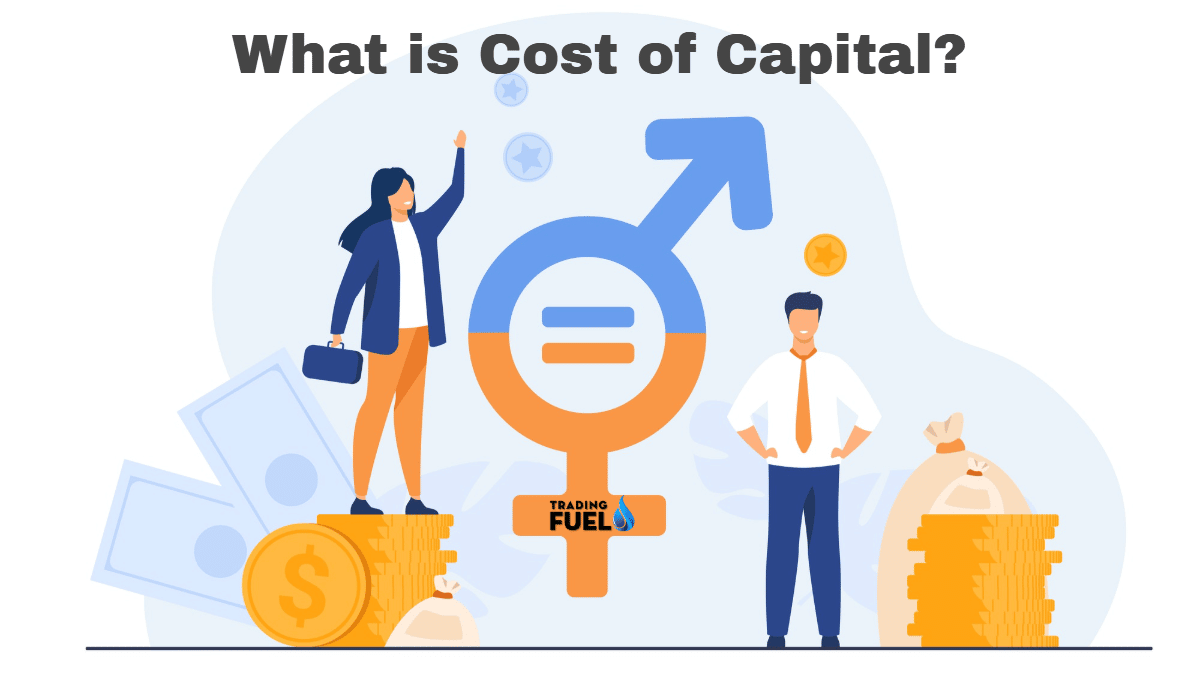Cost of Capital(CoC) is an important business terminology for both investors and companies.
Right, you got to know now that in this article you will learn in brief about “What is Cost of Capital?”
Cost of capital can best be described as the ability to cover both asset and liability expenditures while generating a profit.
In a nutshell, it’s a rate of return that can help companies decide to move forward on a project or help an investor determine the risk of investing in a company.
Let’s begin with the definition first.
What is Cost of Capital?
Cost of capital is the return (%) that is expected by the investors who provide the capital for a business.
Once this costing is paid for, the remaining money is profit.
Since it generates a specific number that determines profitability, it’s used to determine the hurdle rate.
For investors, CoC represents the degree of perceived risk.
An investor always want to put his or her money into a company that will cross the limit of the CoC and hence generate the returns that are proportionate with the risk.
Why Is Cost of Capital Important to Companies?
Companies use the CoC to analyze all the projects.
This numerology determines if the company should invest more assets and when they can see a return on this investment.
Why Is CoCl Important to Investors?
For investors, the cost of capital is an opportunity cost for making a specific investment (as well as the rate of return that can be earned by putting money into an investment).
All the Investors will use the CoC to differentiate the different investments with an equal risk.
Hence, the CoC is the rate of return required to convince the investor to make an investment.
The Cost of Capital Formula:
CoC involves debt, equity, and all other type of capital.
Accountants and financial analysts use the Weighted Average Cost of Capital (WACC) formula to calculate COC.
Cost of Capital Calculator
This formula isn’t easy to run on your own unless you’re financial professional.
Instead, you can also use a cost of capital calculator or find an excel calculator to download.
Is Cost of Capital the Same as WACC?
The CoC is accounted using the Weighted Average Cost of Capital (WACC).
These terms can be used interchangeably in conversation.
It’s important to note that WACC refers to the formula and specific calculation, while the CoC is a general term used to describe the outcome of this equation.
The Two Components of CoC
Corporations are looking for the optimal amount of equity and debt to minimize their CoC.
It’s relatively easier to calculate the cost of debt for a company since it’s the interest rate paid (on loans/bonds) by the corporation.
The cost of equity refers to a shareholder’s demanded return.
It’s a percentage that’s based on the market condition.
The market demands a certain level of amount in exchange for owning the asset and bearing that risk.
The CoC take it into account for both cost of equity and cost of debt (to finance business activity).
How CoC Affects Taxes?
When a company decides how they will finance a project (with either debt or equity), taking on debt can lower the company’s taxable income and, therefore, tax liability.
In this way, the debt can be a beneficial form of financing for a company.
WACC takes this into account by including the tax bracket for a company.
A Common Mistake While Reviewing Cost of Capital
- Analysts commonly make the mistake of equating CoC with the interest rate on that money.
- Remember: Cost of capital is not dependent upon how and where the capital was raised.
Put this in another way, the CoC is dependent on the use of funds, not the source of funds.
This was about CoC.
About Us
Through our article, we had tried to make you understand about the CoC with its definition, formula, usage and its components. Hope that you understood with ease our article on “What is Cost of Capital?” and you can also share your feedback for the same using our email id.
Trading Fuel is our blog site that is started with the purpose to make you understand the different perspective of the stock market. Hope that you liked most of the blogs that we have presented in our site. You can also refer this daily and stay updated with us for the same. Happy Learning.

